Business
How to apply for new NIMC multipurpose ID card
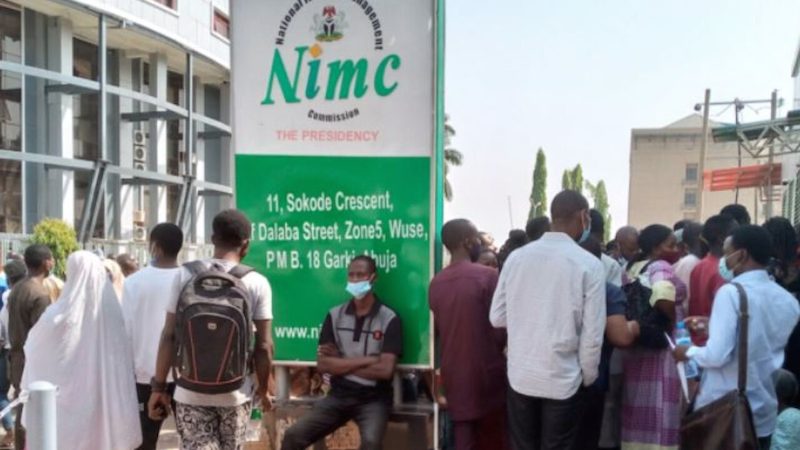
The National Identity Management Commission (NIMC) recently announced the launch of a multipurpose National ID card that can serve the purpose of identity verification, payments, and even government services.
Additional information released by the NIMC reveals that the card will be enabled for all government intervention and services across multiple Ministries, Departments, and Agencies (MDA). Among other capabilities and functionalities, it will also be enabled for the eNaira in compliance with the EMV operational and security standards.
Although NIMC has not categorically stated the date the card will be available to Nigerians, it has released the process of applying for it.
How to obtain the card
According to NIMC, Nigerians intending to apply for the card will go through the following process:
- First, the person goes to the nearest bank or bank-approved center and makes a request for the payment card layered on identity.
- The person provides his or her NIN for identity verification and proof of a minimum age of 18 years.
- The bank sends the NIN to NIMC and receives relevant authorized identity data in the specified format.
- The bank uses the verified identity data to securely prepare the standard EMV data for the card before getting it personalized and printed on by a partner bureau.
- The bank then issues the finished card to the person who made the request it, now the cardholder.
Card expiry date
NIMC noted that while the payment feature “ATM card” part of the solution comes with the standard expiry date printed in front, the identity part on the back of the card will only have an issue date signified and no expiry date.
According to the Commission, when the payment feature of the card expires, the cardholder has 3 options with regard to the continued use of the card:
- “Go to the bank and request a new payment card layered on identity, discarding the previous one.
“Continue to use the card only as a valid means of identification but not for payment – a new separate, standalone payment card is requested from the bank.
- “Continue to use the card only as a valid means of identification without requesting a new payment card (especially for the unbanked persons).”
NIMC warned that the card will still function as an ATM card so it is advisable for users not to give out photocopies or scanned images of it, bearing their sensitive payment details, to unauthorized parties.
The Commission noted that while the user’s NIN is not visible on the card, it can be accessed by scanning the QR code on the card.
Business
We’ve not reintroduced cybersecurity levy, says CBN

The Central Bank of Nigeria (CBN) says it has not reintroduced the cybersecurity levy that was previously suspended.
On May 6, the apex bank directed all commercial, merchant, non-interest and payment service banks, mobile money operators, and payment service providers to charge a 0.5 percent cybersecurity levy on electronic transfers.
The CBN later withdrew the directive on May 20, essentially suspending the proposed cybersecurity levy on electronic transfers.
However, reports had claimed that the apex bank reinstated the levy, quoting the CBN’s “Monetary, Credit, Foreign Trade, and Exchange Policy Guidelines for the Fiscal Years 2024-2025”.
In a statement on Friday, the apex bank said the guideline was issued before December 31, 2023, adding that its stance on the suspension has not been revised.
“Some recent media publications referencing aspects of the Guidelines refer to policy positions of the Bank issued prior to 31st December 2023, which have changed in the light of revisions and updates in 2024,” the CBN said.
“One example is the Cyber Security Levy, which was suspended in May 2024, superseding the circular reported in the Guidelines.”
CBN said the guidelines “must primarily” be viewed as a record of policies, circulars and directives issued “up to the end of 2023”.
The bank said they are not new directives and should not be reported as such, adding that it would continue to provide clear monetary policy direction and advice for the overall benefit of the economy.
Business
NCAA to address ticket refund issues within 24 hours as Keyamo launches portal
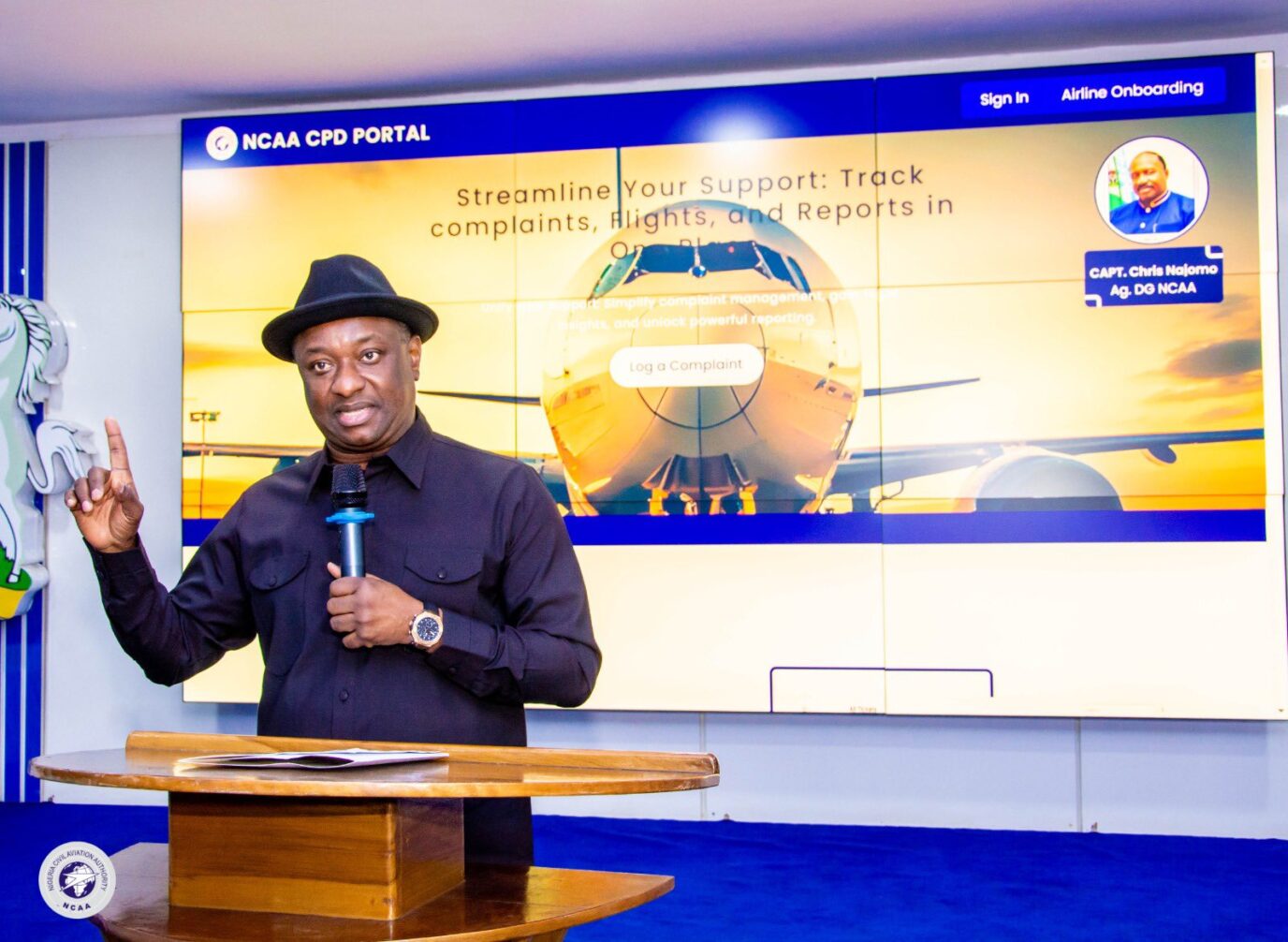
Festus Keyamo, minister of aviation and aerospace development, has inaugurated the consumer protection portal of the Nigeria Civil Aviation Authority (NCAA).
The portal, launched in Lagos on Thursday, aims to provide easy access for travellers to lodge complaints online and track the resolution process.
Speaking at the launch, Keyamo directed the NCAA to address airline ticket refunds owed to passengers by airlines within 24 hours.
He said many passengers have struggled to reclaim funds for flights booked from airlines that are currently not operating.
Keyamo, on April 24, had asked the NCAA to suspend the operations of Dana Air after one of its aircraft veered off the Lagos airport runway.
“I am not unaware of the complaints of people whose money has not been refunded by certain airlines that have stopped operations due to safety concerns,” Keyamo said.
“I receive a huge number of such complaints in my emails, text messages, and direct messages. I have been a lawyer of the federal republic for over 30 years before I was called to serve my fatherland. People find a way to send these complaints to me and that is why I receive some of these complaints directly.
“For the airlines that have not refunded passengers’ money, there must be a public statement by the NCAA by the end of Friday latest.
“Let the public know what is happening to that money. I know you have resolved that. Let’s not pretend as if we are not hearing anything about this. People bought tickets before the airlines ran into troubled waters. What happened to their money? What plans do you have to refund them? This is part of consumer protection.
“The NCAA should come out with a public statement to show what they are doing about resolving the issue.”
‘CONSUMER PROTECTION PORTAL TO ENSURE EFFICIENCY’
On protecting travellers, Keyamo said the portal is expected to streamline the complaints process and ensure efficiency in the aviation sector.
He commended the NCAA’s leadership, particularly its consumer protection directorate, for the initiative, noting that passenger satisfaction is crucial for the industry’s viability.
“The final thing that we must achieve in the sector is that the person boarding the aircraft must have good experience, must feel the change either in terms of prices, environment or experience. Everybody is working for that final consumer, including myself,” he said.
“Let it be clear that we are all consumer protection officers and it’s not only for those gentlemen and ladies in uniform.
“As a frequent flyer myself, I have seen firsthand, the rage of passengers who are either disappointed by delayed flights, cancellations or some ugly experiences on those flights. I have seen the rage and this is a means by which they can ventilate that rage.”
On his part, Chris Najomo, acting director-general of the NCAA, praised the initiative as a vital step in protecting the rights of aviation consumers in Nigeria.
“In today’s rapidly evolving marketplace, consumers face myriads of challenges. From being unaware of their rights to navigating complex regulations to addressing poor services or unfair practices,” Najomo said.
“Hence, the need for a robust system to protect and empower consumers has never been more critical.”
Business
Coca-Cola announces plan to invest $1bn in Nigeria
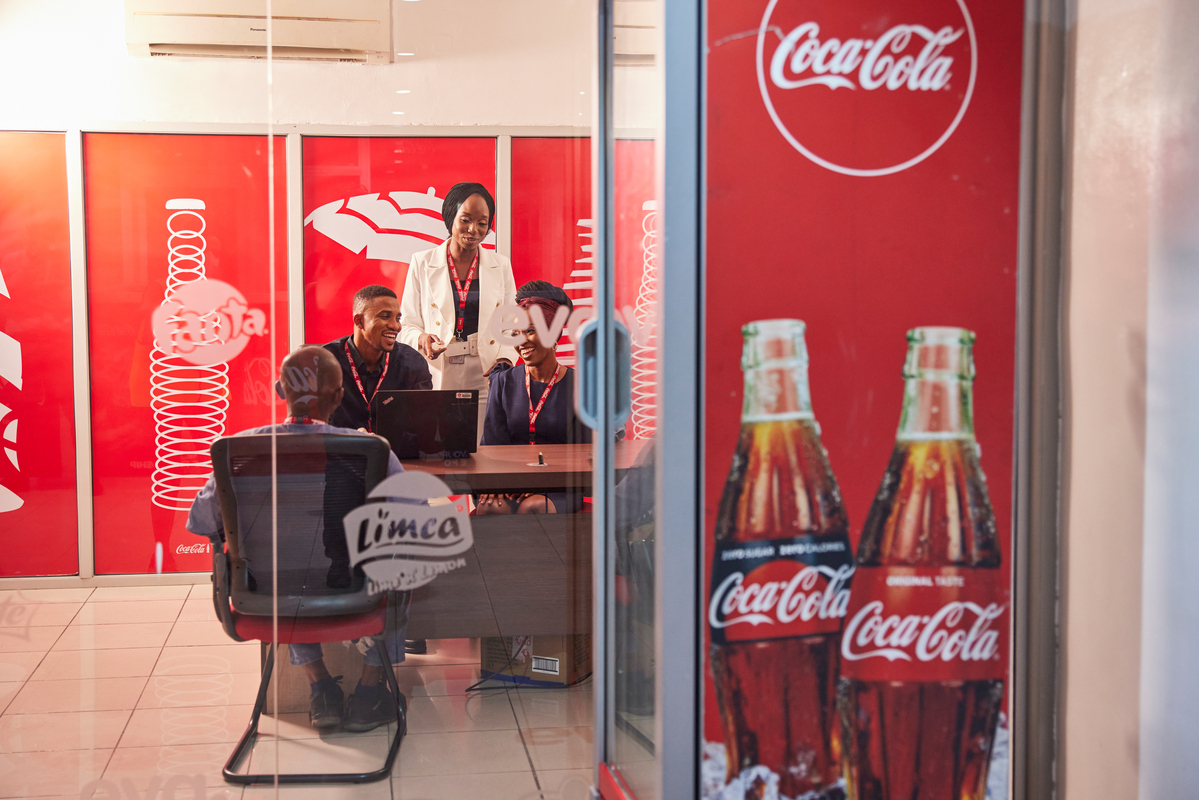
Coca-Cola Hellenic Bottling Company says it will invest $1 billion in Nigeria over the next five years.
The investment commitment was made during a meeting with Coca-Cola’s global leadership team, including John Murphy, president and chief financial officer, and Segun Apata, chairman of Nigerian Bottling Company.
Reacting to the development in a statement on Thursday, President Bola Tinubu commended Coca-Cola for its long-standing partnership with Nigeria and for employing over 3,000 people across nine production facilities.
Tinubu said the investment highlights his administration’s commitment to creating a robust financial system and a business-friendly economy.
The president spoke in a statement signed by Bayo Onanuga, his special adviser on information and strategy.
“We are business-friendly, and as I said at my inauguration, we must create an environment of easy-in and easy-out for businesses,” the statement reads.
“We are building a financial system where you can invest, re-invest, and repatriate all your dividends. I have a firm belief in that.”
Tinubu said private sector partnerships are crucial to his government’s reforms aimed at improving the business environment.
He pledged to continue to support Coca-Cola for expanding its investments in Nigeria and addressing environmental issues, including climate change.
Murphy, speaking on Coca-Cola’s impact in Nigeria, said the company generates ₦320 billion annually through nearly 300,000 customers and contributes almost ₦90 billion in revenue to the Nigerian government.
“We are very proud of the growth of the business over a long period and its impact on the daily lives of many Nigerians,” he said.
Zoran Bogdanovic, CEO of Coca-Cola Hellenic Bottling Company, attributed the company’s $1 billion investment pledge to its confidence in the Nigerian government’s policies.
“Mr President, in your inaugural address, we were very pleased to hear of your invitation for foreign investors to invest and your assurance that foreign businesses can repatriate dividends and profits,” the CEO said.
“That assurance gives us the confidence to continue our investments. Since 2013, we have invested $1.5 billion in Nigeria in capacity expansion, transformation of our supply chain infrastructure capabilities, training and development.
“I am very pleased to announce that, with a predictable and enabling environment in place, we plan to invest an additional $1 billion over the next five years.”
Bogdanovic said Nigeria’s potential is tremendous, pledging the company’s commitment to work with the government to realise it.
In November 2021, the beverage manufacturer had plegded to inject $1 billion into Nigeria’s economy.
-
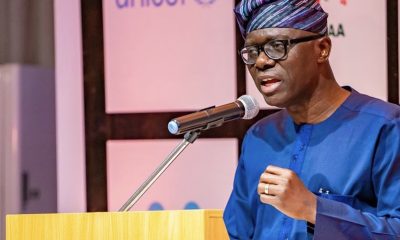
 Education4 days ago
Education4 days agoLagos state government justifies boarding fee hike for student welfare
-

 Education7 days ago
Education7 days agoLagos state government increases boarding fees from N35,000 to N100,000 per term
-

 Business3 days ago
Business3 days agoCBN constitutes new Keystone Bank board, names Ada Chukwudozie chair
-

 Celebrities1 week ago
Celebrities1 week agoSuper Bowl: Nicki Minaj, Birdman slam Jay-Z for picking Kendrick over Lil Wayne
-

 World1 week ago
World1 week agoAustralia to ban children from using social media
-

 Celebrities1 week ago
Celebrities1 week agoGospel singer Dele Gold is dead
-
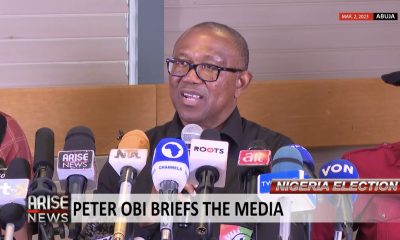
 Politics7 days ago
Politics7 days agoI never said I’ll settle for VP in 2027 — fifth columnists distorted my remarks, says Obi
-

 Celebrities1 week ago
Celebrities1 week agoDJ Neptune addresses Laycon’s claim of unpaid royalty


















